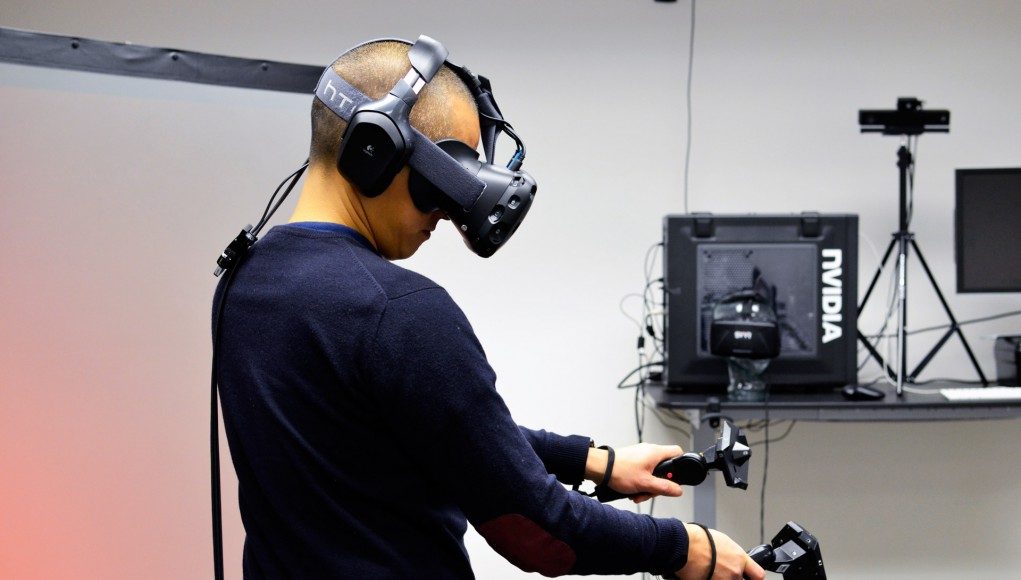When it comes to the virtual reality industry today, the way people are looking at VR is very natural, but also very wrong. While we all incessantly talk and freak out about experiences like flying over the grand canyon in VR, it’s actually user-generated content in VR and new original voices that are set to emerge and lead the coming revolution.
Ben is an active investor in VR and digital media, and is based in Los Angeles. Ben was an early Google and YouTube exec, and has founded and led multiple venture backed video startups. His monthly profiles on “why people are great at what they do” are found here.
Sure, right now, we want to make VR look like what we know already. As natural as that is, it seems like every time we build a new content platform we all get it wrong. As an early Google and YouTube employee, I have vivid memories of Google Executive David Eun in 2006, explaining to our YouTube team that media incumbents never seem to get it right.
When television arrived in middle of the 20th century, the radio guys thought they would win in the new technology. That sure didn’t happen. And then when cable came out, the TV networks thought they would win and control the new cable frontier. That didn’t happen. And then the internet came out, the media conglomerates thought they would win that. Whoops, whoops, and whoops again. It’s natural to believe the old platform will dictate the rules of the new platform. But it just never happens.
Why will VR be any different?
When new platforms emerge, even internally they are slow to recognize and seize upon their own unique talent and identities. It’s natural to emulate the old platforms until you realize you are different, and then take huge leaps when you embrace what makes you a unique platform and offering.

At YouTube, we didn’t even want to embrace user-generated content stars for over half a decade. We turned a blatant blind eye toward the young personalities that have come to define the YouTube platform. Sure, YouTube encouraged young talent to express political opinions, or to be a voice of social change, but somehow this talent was not ‘good enough’ to be actual entertainment.
You can’t really blame Google too much. Google sells ads better than almost everybody, and in order to appease and appeal to advertisers, Google felt they somehow had to have the ‘premium’ entertainment that advertisers were used to buying. The ad buyers wanted something very different than what the actual viewers enjoyed. YouTube didn’t listen to viewers in creating a business model, and subsequently struggled for years. Unconsciously, we tried to make YouTube into a massive cable TV system. It seems like it’s only recently that YouTube is embracing new business models and starting to lead as we all make the move to a subscription based web.
Now virtual reality is already at the same crossroads. Somehow we’re overestimating how cool a flyover of the Grand Canyon will be to viewers, and dramatically underestimating how compelling new talent will be in VR.
It’s important to remember that all content platforms are actually about people. Personality drives content platforms. From Snapchat (Casey and others) to ESPN (Bill Simmons) to even Huffington Post (Arianna) to YouTube, it’s always about the people that define the platform. If anything, VR will open up millions of new ways to communicate and interact that we have never experienced before.

The main argument against user-generated content in VR is that the barrier to creation is much higher than in video. There is a mistaken belief that users can’t create in VR today.
Some of the interesting startups addressing this challenge include Voxelus, Linden Lab, and several more stealthy teams. Some companies like Kaleidoscope have even embraced models that aggregate programmers as essentially the talent for the platform. While in the short term this is interesting, I suspect we’ll move from programmers as talent to front of the camera talent much faster than we all believe, even if in the short term this means animated characters. Likewise, social spaces are interesting, but face the dreaded ‘Second Life’ problem. There is nothing to actually do in these spaces until the talent emerges to entertain and interact with us.
Don’t get me wrong, dedicated VR content companies like Jaunt are certainly interesting, but the real action are platforms that enable creation and expression. There is nothing wrong with a Jaunt becoming a much needed HBO or Netflix of VR. But that’s not where the huge leap is for VR. While everybody is trying to create content companies, and some companies aim to create the mythical metaverse (the parallel being modern day portals like Yahoo), I’m more interested in who is creating the WordPress and Squarespace of VR. I’ll be watching to see which VR startups and platforms lower the barrier for user-generated VR content. A key indicator for the health of the VR industry will be how quickly the tools to create UGC arrive for users of virtual reality.
Over the next year, I’m asking questions like, “What is the equivalent of commenting in VR”? Thats fascinating. On a very fundamental level, I see current day websites as 2D representations, and VR as 3D representations. I’m excited to find out how to create comments in a 3D space. The future of VR commenting is participating, remixing, and creating. Showing people your world.
Marc Andreessen is on record as saying when he started Netscape, he didn’t anticipate the web becoming participatory. Back in the nineties, he missed the entire notion of the social web. That’s why Netscape ended up calling it a ‘browser’. So how, in 2016, will we have a new platform and medium where the user does not actively participate and create? Impossible. We’re not in 1998 anymore.








